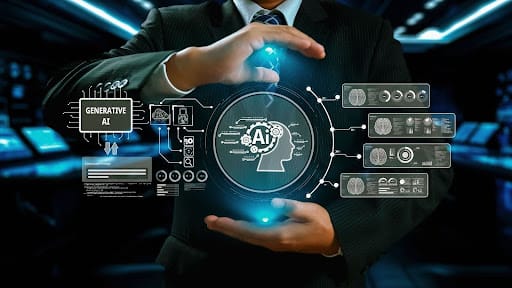Have you ever questioned how certain businesses are able to recruit the right talent so rapidly and retain their employees so highly engaged? The answer is in AI in human resource management. Artificial Intelligence is no longer jargon in HR. It is a pragmatic tool transforming the way organizations recruit, retain, and enable their talent. From simplifying mundane tasks to providing real-time analysis, AI is making HR wiser and more humane simultaneously.
Smarter Hiring with AI
Hiring is the most labor-intensive task HR has to do. Historically, recruiters have wasted hours poring over resumes, booking interviews, and going back and forth with managers. It drags out the hiring process and usually results in second chances being lost. AI turns this into an increased speed, improved accuracy system.
Here's how it operates:
- Resume Screening: AI-based software can scan thousands of resumes in an instant, find the most appropriate candidates, and even automatically match them to given job specifications.
- Predictive Hiring: With the assessment of skills, past performance, and even fit for company culture, AI foretells how likely a candidate will succeed at the job.
- Automated Interview Scheduling: Intelligent assistants manage routine tasks such as scheduling interviews and reminders, eliminating delays and enhancing candidate experience.
The result? Lower hiring expense, decreased time-to-hire, and increased chances of finding candidates who are an actual good fit.
Employee Engagement Reinvented
Maintaining workers' engagement has never been easy. AI makes it feasible to track engagement on a day-by-day basis instead of annually. Picture having a virtual HR assistant that hears from employees daily. That is what contemporary AI systems offer.
- Virtual HR Chatbots: Workers can obtain real-time responses to HR questions such as leave procedures, payroll, or training availability.
- Sentiment Analysis: AI systems scan worker input, emails, and communication patterns to identify engagement levels or warning signs of dissatisfaction.
- Personalized Recommendations: Through data, AI is able to recommend learning modules, wellness programs, or appreciation schemes unique to every worker.
This not only increases morale but also forms a work environment where workers are heard and cared for.
Workforce Planning and Predictive Insights
One other aspect where AI in human resource management excels is workforce planning. Predictive analytics can be utilized by HR leaders to forecast workforce requirements and make better decisions.
- Turnover Predictions: AI is able to detect patterns that indicate who is likely to leave, allowing HR to act early.
- Skill Gap Analysis: It draws attention to the areas in which employees require training, which keeps companies ahead in a changing job market.
- Personalized Career Paths: AI insights can chart out opportunities for career growth, and employees have a clear direction for improvement while companies maintain top talent.
This information-driven strategy makes HR a strategic enabler of business success as opposed to a support function.
AI and Fairness in HR
Another major HR challenge is unconscious bias. Humans tend to make personal judgments naturally, particularly when hiring and promoting. AI, when used properly, reduces this bias. Focusing solely on skills, qualifications, and facts, AI makes a more equitable and inclusive recruitment process.
Of course, the system has to be well-designed, with consideration for transparency and ethical standards. That's why businesses require AI solutions that are not just powerful but also reliable and in line with industry compliance standards.
The Human + AI Partnership
Some worry that AI will replace HR professionals, but the reality is quite the opposite. AI exists to augment, not replace. Through automating tedious back-office administrative tasks, AI liberates HR teams to do what matters most, i.e. establish relationships, build culture, and drive innovation.
Imagine AI as a co-pilot. It does the data-heavy lifting, and humans contribute empathy, creativity, and strategic thinking. Combined, they provide a better-balanced, people-oriented HR environment.
Conclusion
The future of HR is now, enabled by smart, data-driven solutions that make recruitment smarter, engagement more profound, and workforce planning more efficient. Organizations that implement AI in human resource management will not only enhance efficiency but also create fairer, more inclusive, and responsive workplaces.
With years of experience in GenAI-driven software, smart automation, and future-generation Agentic AI platforms, Everestek is empowering businesses to reimagine HR in the future. By integrating sophisticated frameworks with enterprise-level infrastructure, they are assisting organizations in designing HR ecosystems that are intelligently smart, scalable, and human-centric.
